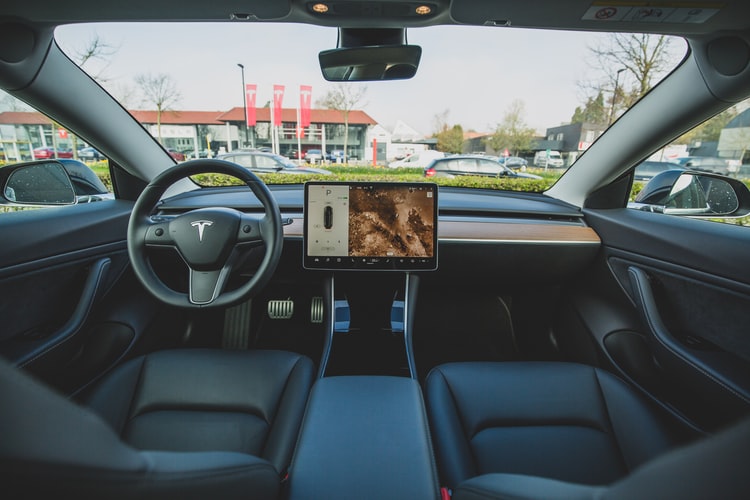 If there’s any evidence that we are already living in the future, it’s the development of self-driving cars. Previously a mainstay of science-fiction movies, partially autonomous self-driving vehicles are currently sold by Tesla, Inc., under the leadership of tech entrepreneur Elon Musk, and are being used in select cities (including Dallas) by ridesharing services like Lyft.
If there’s any evidence that we are already living in the future, it’s the development of self-driving cars. Previously a mainstay of science-fiction movies, partially autonomous self-driving vehicles are currently sold by Tesla, Inc., under the leadership of tech entrepreneur Elon Musk, and are being used in select cities (including Dallas) by ridesharing services like Lyft.
The technology isn’t perfect yet—people sitting in the driver’s seat must be ready to take the wheel at a moment’s notice—but that doesn’t keep commuters from dreaming about catching a few extra minutes of sleep in the mornings while their car does all the driving.
In 2017, Texas became one of ten states approved by the U.S. Department of Transportation to start testing automated driving technology in vehicles. Now, riders in the Dallas area may request to be picked up by a number of self-driving vehicles in a rideshare service’s fleet and place their trust in the hands of a “robo-taxi.” While this could certainly lead to a significant change in the lives of drivers everywhere, it brings up an important question that is still being hotly debated at the national level: what happens if you get in a car accident while riding in a self-driving car?
Liability in a Self-Driving Car Accident
Imagine a situation in which you wake up in the morning, get ready for work, hop in your self-driving vehicle, and relax for a few minutes with your eyes closed as your car does all the heavy lifting. Then, in a split-second, you are dealing with a serious bodily injury because your car’s automated driving system failed to recognize an oncoming car.
Some people would argue that because the car was technically driving itself, the human driver of the vehicle is not liable for any injuries sustained by the other victim. However, the United States doesn’t currently have a robust policy in place that defines exactly who is liable in cases like these. It can easily become complicated to answer the question of fault after a car accident, mainly because self-driving car crashes fall under two separate liability frameworks:
- Personal Liability: For the vast majority of collisions in the United States, both drivers must take responsibility for any instances of negligence while out on the road. For self-driving cars in their current state, drivers still hold a certain amount of liability due to the requirement that they stay vigilant and ready to take the wheel at any moment. However, fully self-driving cars, which won’t be here for a while, will theoretically be able to drive independently from the driver. In these cases, the driver might not be found liable for an accident caused by the automated driving system in his car.
- Product Liability: When a wreck is caused by malfunctioning components, poorly manufactured parts, or defective products, it can be treated as a product liability case. In this circumstance, the injured victims would take their claims to the manufacturer that created either the defective part or the vehicle itself and seek financial compensation for their damages. When it comes to self-driving cars, this presents a difficult situation, particularly if the crash was caused due to an error in the automated driving software. Because the car’s software is intangible, it would have to be proven that an error in the coding itself was what caused the accident. For obvious reasons, this can be difficult to prove.
Generally, the state of today’s self-driving cars means that if the accident could have been prevented by the other driver stepping in and taking control of his vehicle, he will be at least partially liable for your injuries. On the other hand, if the crash was a result of an error in the car’s system or a physical component, it would fall under product liability laws and the manufacturer or engineer would be to blame.
An Experienced Dallas Car Accident Attorney Can Help
A serious car accident can change your life. It may impact your ability to work, provide for your family, and enjoy the same life you had prior to the crash. Our team of Dallas car accident lawyers is dedicated to helping you navigate this complex, and often confusing, legal landscape so you can fight for the financial compensation you deserve. If you or a loved one has been involved in a car accident with a self-driving vehicle, contact our office at (214) 231-0555 for a free case evaluation.





